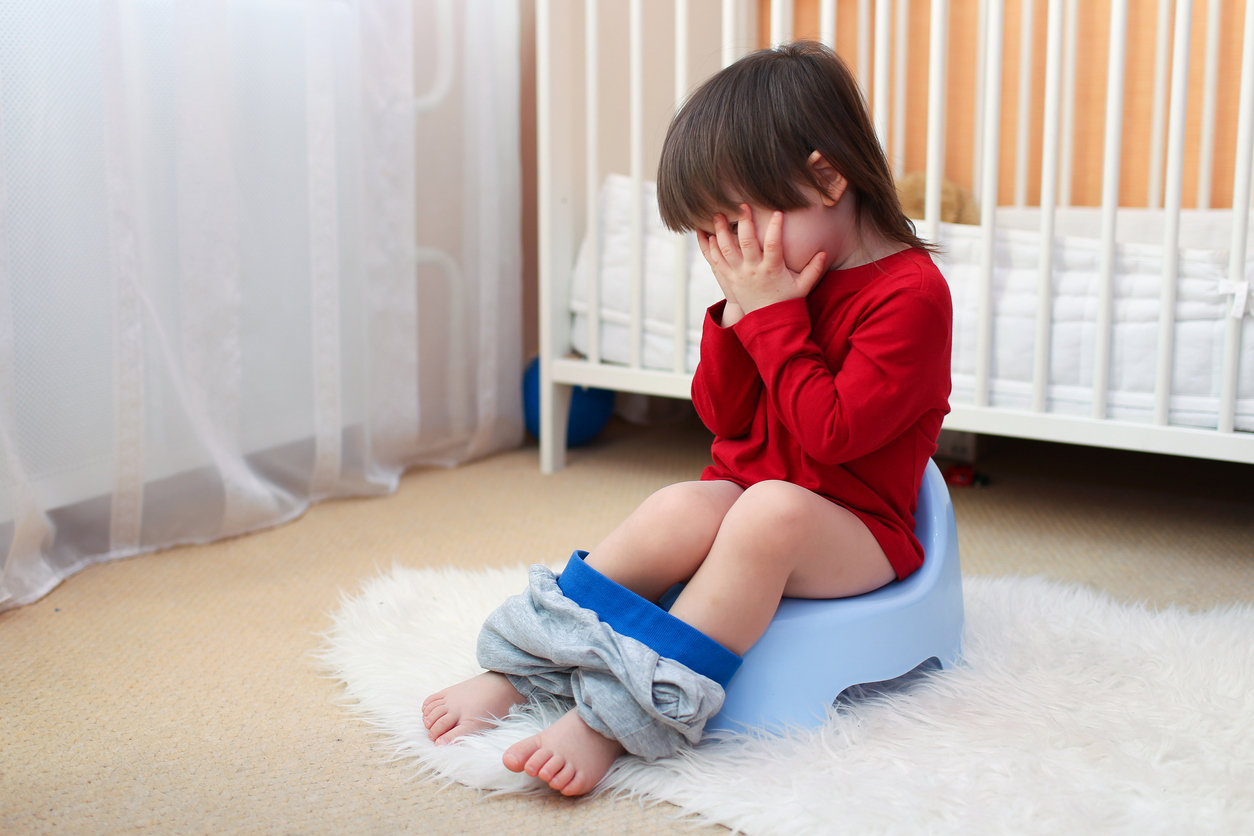
There's no question that potty training can be a painful process for parents — but sometimes it's literally painful for kids. One uncomfortable bout of constipation can throw your training efforts totally off track, making your toddler so scared to poop that he'll do everything in his power to avoid going "number two" again — squeezing, clenching, holding — which, of course, only makes the problem worse. How does this happen, and what can you do about this very common problem?
"Children develop fear of pooping most often because of the pain associated with pooping," says Bryan Vartabedian, MD, a pediatric gastroenterologist and author of Looking Out for Number Two: A Slightly Irreverent Guide to Poo, Gas, and Other Things That Come Out of Your Baby.
"If a young child experiences pain on a couple of occasions, they soon learn that it hurts when they go, and they hold on," Dr. Vartabedian tells CafeMom. "The more they hold on, the more poop accumulates and the bigger it comes out next time, which only reinforces the behavior. I sometimes call [it] 'post-traumatic stool disorder.'"
More from CafeMom: When a Potty-Trained Kid Has Accidents: 12 Dos & Don'ts
"Children with stool withholding often assume crazy postures like arching and crossing their legs," he says. "Some will squat and bounce. Pretty commonly parents believe that their kids are trying to go but, in fact, they're trying not to go. These kids learn pretty quickly that they can put off the inevitable for a while. But at some point they have to pay the piper and poop."
And when that moment comes, it's not always pretty! Pooping can be so tough, in fact, that some kids want to avoid the potty altogether and choose the more comfortable, familiar option of doing their business in their pants. So the best way to handle this scenario is to avoid painful poop in the first place — which you can do by making sure your child stays regular.
"It's really important that after the first year and as a child approaches potty training, poo remain as soft as possible," says Dr. Vartabedian.
Fiber is key when it comes to keeping things moving in the digestive department — and the good news is, plenty of toddler-friendly foods are high in fiber (such as pears, plums, peaches, and prunes). But fiber isn't actually the most crucial factor in preventing constipation: As Dr. Vartabedian writes in his book, "fiber without fluid makes cement. And while fiber is important, fluid will get you further."
Make sure your child is drinking plenty of water and natural juice. Proper hydration usually will do the trick, but if it doesn't, talk to your child's pediatrician, who may prescribe a mild stool softener.
More from CafeMom: 6 Signs Your Toddler Is Ready for Potty-Training
And while you may be tempted to try herbal or other all-natural remedies to get things moving, Dr. Vartabedian warns against these "quick fixes," noting that just because they're natural doesn't mean they're safe.
"Parents should always consult their doctor," before trying any remedies, he says.
Once your little one is on a regular schedule of pain-free poos, it'll be much easier to get back on track with potty training. Remember that these setbacks are temporary, and healthy digestive habits can last a lifetime.




